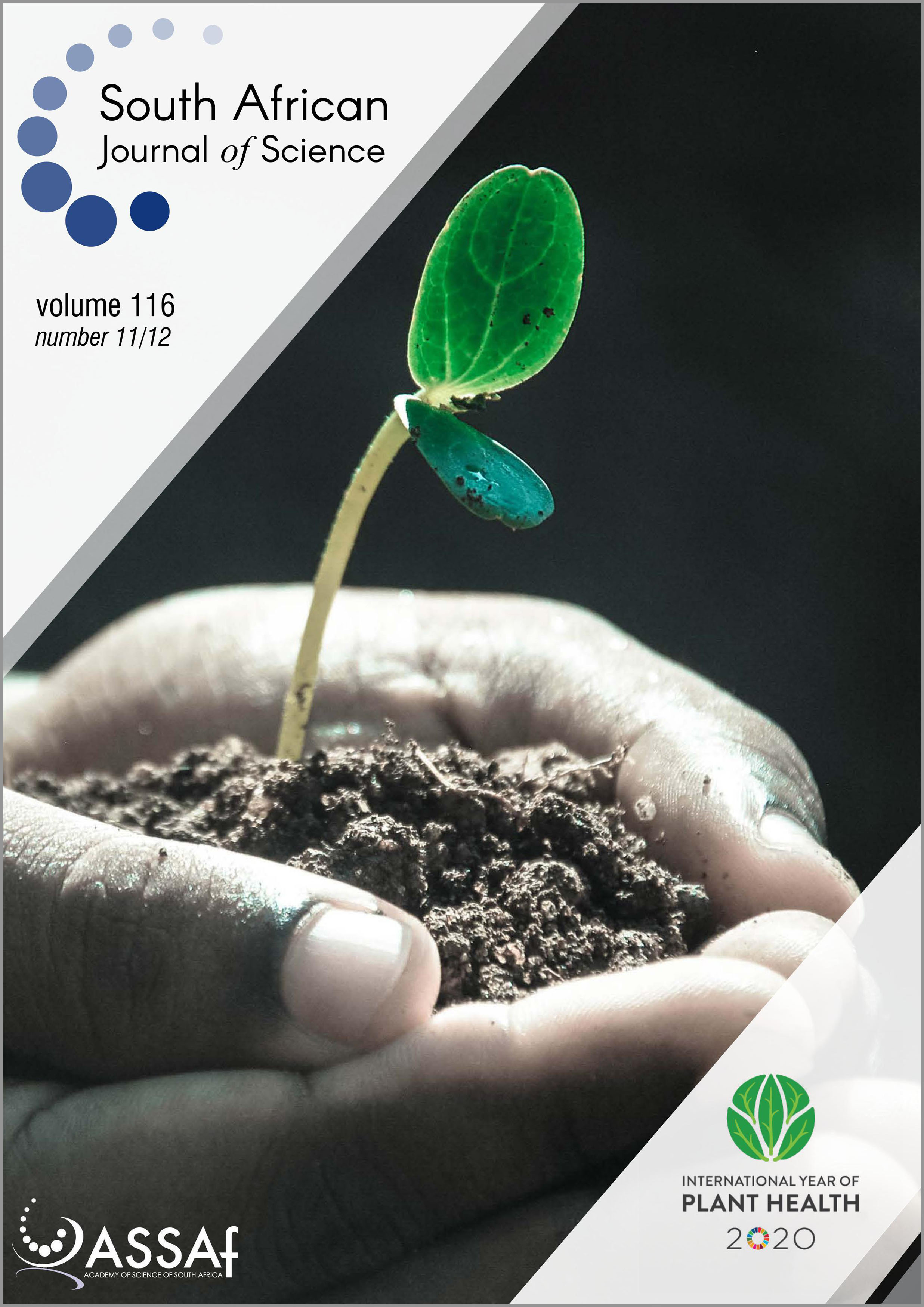Application of plant extracts and Trichoderma harzianum for the management of tomato seedling damping-off caused by Rhizoctonia solani
DOI:
https://doi.org/10.17159/sajs.2020/7860Keywords:
biocontrol, Monsonia burkeana, Moringa oleifera, soil-borne diseases, seed treatmentAbstract
Seedling production under smallholder farming systems can be negatively affected by both abiotic and biotic factors. Seedling damping-off caused by Rhizoctonia solani is one of the major biotic factors which causes significant yield reduction. Management is mainly based on the application of synthetic fungicides and cultural practices. However, both methods have limitations which result in their inefficiency. Several studies have reported on the use of plant extracts and biological control to manage plant diseases. The aim of this study was to formulate an effective and practical approach to manage tomato seedling damping-off using extracts of Monsonia burkeana and Moringa oleifera and a biological control agent Trichoderma harzianum. The efficacy of both extracts was investigated under laboratory conditions to determine the most suppressive concentration to R. solani growth. Methanolic extracts from both plants significantly suppressed pathogen growth at different concentrations. M. burkeana significantly reduced R. solani growth at 8 g/mL (71%) relative to control whilst Moringa oleifera extract reduced pathogen growth by 60% at a concentration of 6 g/mL. The highest suppressive concentrations were further evaluated under greenhouse conditions to test their efficacy on seedling damping-off. In damping-off treatments, both plant extracts and T. harzianum also significantly reduced (p=0.5) pre- and post-emergence damping-off incidence. M. burkeana recorded the highest suppression at 78%, followed by M. oleifera at 64%. Trichoderma harzianum reduced incidence of damping-off by 60% and this was higher than both plant extract treatments.
Significance:
- The use of M. burkeana and M. oleifera extracts and T. harzianum effectively suppressed pathogen growth and disease incidence and can be used to reduce the use of synthetic pesticides that are harmful to the environment and human health.
- Application of plant extracts and biological control agents as possible alternatives to synthetic fungicides is considered a sustainable and affordable practice for smallholder farmers.
Published
Issue
Section
License

All articles are published under a Creative Commons Attribution 4.0 International Licence
Copyright is retained by the authors. Readers are welcome to reproduce, share and adapt the content without permission provided the source is attributed.
Disclaimer: The publisher and editors accept no responsibility for statements made by the authors
How to Cite
- Abstract 833
- PDF 856
- EPUB 195
- XML 280
Funding data
-
National Research Foundation
Grant numbers 75909












.png)